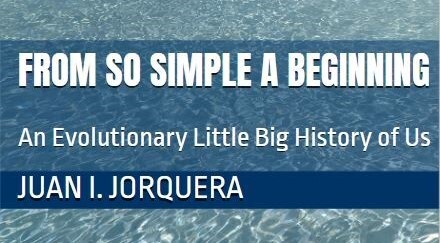
¿Es compatible el crecimiento económico "sostenido" con el crecimiento económico "sostenible"? Hasta ahora, se ha considerado que el crecimiento económico continuo, medido en términos de producto interior bruto (PIB), es esencial para la prosperidad. Pero muchos investigadores han cuestionado si el crecimiento sin fin es benigno para el planeta.
Aunque varios países de altos ingresos han podido disociar las tasas de crecimiento de las emisiones de carbono, la huella material mundial está aumentando a un ritmo mayor que la población y el PIB.
https://www.nature.com/articles/d41586-023-02509-5
#OnScienceAndSociety
(Foto de dólar obtenida de Wikimedia)
Is "sustained" economic growth compatible with "sustainable" economic growth? Until now, continued economic growth, measured in terms of gross domestic product (GDP), has been seen as essential for prosperity. But many researchers have questioned whether endless growth is benign for the planet. Although several high-income countries have been able to decouple growth rates from carbon emissions, the global material footprint is increasing at a faster rate than population and GDP.
https://www.nature.com/articles/d41586-023-02509-5
#OnScienceAndSociety
(Dollar picture from Wikimedia)
Nature editorial, which is analysing progress and gaps in meeting the 2030 Agenda and the UN Sustainable Development Goals. This week deals with the seventh goal: affordable and clean energy.
In 2021, some 675 million people were without electricity. A decade ago it was 1.1 billion, but progress has slowed. Some 660 million people, mainly in Africa, will remain without electricity by 2030. Some 1.9 billion people will continue to cook with charcoal and wood .https://www.nature.com/articles/d41586-023-02510-y
#OnScienceAndSociety
Picture: Parques de energía solar Noor 1 and 2, Marruecos; Wikimedia
Editorial de Nature, que está analizando el progreso y las carencias para cumplir la Agenda 2030 y los Objetivos de Desarrollo Sostenible de la ONU. Esta semana toca el séptimo objetivo: Energía asequible y no contaminante.
En 2021, unos 675 millones de personas no tenían electricidad. Hace una década eran 1.100 millones, pero el progreso se ha desacelerado. Unos 660 millones de personas, principalmente en África, permanecerán sin electricidad en 2030. Unos 1.900 millones de personas seguirán cocinando con carbón y madera.
https://www.nature.com/articles/d41586-023-02510-y
#OnScienceAndSociety
Foto: Parques de energía solar Noor 1 and 2, Marruecos; Wikimedia
This is the 101st post on my https://jijorquera.wixsite.com/onscienceandsociety website, which continues the series on progress. Specifically, this publication discusses lessons learned from the COVID-19 pandemic regarding the relevance of public health systems. It also includes a small digression on the increase in longevity and the search for eternal youth, which had one of its first believers in the explorer Juan Ponce de León and one of its first skeptics in the historian Gonzalo Fernández de Oviedo y Valdés, already more than 500 years ago.
https://jijorquera.wixsite.com/onscienceandsociety/post/progress-iv-covid-19-public-health-systems-and-longevity
#OnScienceAndSociety
Esta es la publicación número 101 de mi web https://jijorquera.wixsite.com/onscienceandsociety, que continúa la serie sobre el progreso. Concretamente, esta publicación trata de las lecciones aprendidas tras la pandemia de la COVID-19 en relación con la relevancia de los sistemas públicos de salud. También incluye una pequeña digresión sobre el incremento de la longevidad y la búsqueda de la eterna juventud, que tuvo uno de sus primeros creyentes en el explorador Juan Ponce de León y uno de sus primeros escépticos en el historiador Gonzalo Fernández de Oviedo y Valdés, ya hace más de 500 años
https://jijorquera.wixsite.com/onscienceandsociety/post/progress-iv-covid-19-public-health-systems-and-longevity
#OnScienceAndSociety
Nature is publishing a series of editorials analyzing the progress and shortcomings to be corrected in order to meet the 2030 Agenda and the UN Sustainable Development Goals. This week it is the turn of the sixth objective: to provide the entire world population with clean water and sanitation.
As of 2022, some 2.2 billion people still lacked access to safe drinking water, according to a July report by the World Health Organization and the U.N. children's agency UNICEF. In addition, some 653 million people did not have handwashing facilities at home.
https://www.nature.com/articles/d41586-023-02442-7
#OnScienceAndSociety
Nature está publicando una serie de editoriales analizando el progreso y los defectos por corregir para poder cumplir la Agenda 2030 y los Objetivos de Desarrollo Sostenible de la ONU. Esta semana toca el turno al sexto objetivo: proveer a toda la población mundial de agua limpia y saneamiento.
Hasta 2022, unos 2.200 millones de personas aún carecían de acceso a agua potable, según un informe de julio de la Organización Mundial de la Salud y la agencia de la ONU para la infancia, UNICEF. Además, unos 653 millones de personas no tenían instalaciones para lavarse las manos en casa.
https://www.nature.com/articles/d41586-023-02442-7
#OnScienceAndSociety
Today's post, on progress in health, is dedicated to those who participated in the development of vaccines against the virus causing COVID-19. They have possibly saved millions of lives thanks to their inventiveness and effort.
https://jijorquera.wixsite.com/onscienceandsociety/post/progress-iii-health-ii
#OnScienceAndSociety
El post de hoy, sobre el progreso en salud, está dedicado a quienes participaron en el desarrollo de vacunas contra el virus causante de COVID-19. Posiblemente han salvado millones de vidas gracias a su inventiva y esfuerzo. https://jijorquera.wixsite.com/onscienceandsociety/post/progress-iii-health-ii
#OnScienceAndSociety
Esta semana continúo la serie de publicaciones sobre el progreso. Ahora, cuando escuchamos voces en contra de la vacunación, que es posiblemente el mejor invento de la humanidad, es un buen momento para revisar el progreso en salud y la relevancia que la vacunación ha tenido para mejorar la supervivencia y la salud en todo el mundo.
https://jijorquera.wixsite.com/onscienceandsociety/post/progress-ii-health-i
#OnScienceAndSociety
This week I continue the series of posts on progress. Now, when we hear voices against vaccination, which is possibly the best invention of humanity, it is a good time to review the progress in health and the relevance that vaccination has had in improving survival and health around the world.
https://jijorquera.wixsite.com/onscienceandsociety/post/progress-ii-health-i
#OnScienceAndSociety
Yesterday in Spain there was an electoral debate in which the representative of VOX questioned the 2030 agenda and with it the sustainable development goals (SDGs), approved by the UN on 9/25/2015. These are a plan of action for people, planet, and prosperity, which also intends to strengthen universal peace and access to justice. The 1st SDG is to end poverty. The 2nd, zero hunger. The 3rd, health and well-being for all, and the 4th, quality education. I wonder what can lead to questioning these objectives set by the United Nations.
https://www.nature.com/articles/d41586-023-02327-9
#OnScienceAndSociety
Ayer en España hubo un debate en el que el representante de VOX cuestionó la agenda 2030 y con ello los objetivos de desarrollo sostenible (ODS), aprobados por la ONU el 25/9/2015. Se trata de un plan de acción a favor de las personas, el planeta y la prosperidad, que también tiene la intención de fortalecer la paz universal y el acceso a la justicia. El 1er ODS es acabar con la pobreza. El 2º, hambre cero. El 3º, salud y bienestar para todos y el 4º, educación de calidad. Me pregunto qué puede llevar a cuestionar estos objetivos establecidos por la Organización de las Naciones Unidas.
https://www.nature.com/articles/d41586-023-02327-9
#OnScienceAndSociety
And again a new day begins. And when the sun rises, the world will watch in horror run over its fields four horsemen enemies of man.
—Alfredo Mañas and Manolo Díaz; Apocalipsis (Music Record), Aguaviva, 1977
I begin a new series of posts on Progress in my web (https://jijorquera.wixsite.com/onscienceandsociety) and how it is helping to dismount the Four Horsemen of the Apocalypses, in spite of defects and insuficiencies.
https://jijorquera.wixsite.com/onscienceandsociety/post/progress-i-dismounting-the-four-horsemen-of-the-apocalypses
#OnScienceAndSociety
Y de nuevo comienza un nuevo día. Y cuando salga el Sol, el mundo verá con horror correr sobre sus campos cuatro jinetes enemigos del hombre.
—Alfredo Mañas y Manolo Díaz; Apocalipsis (LP), Aguaviva, 1977
Empiezo una nueva serie de publicaciones sobre el progreso y cómo está ayudando a descabalgar los cuatro jinetes del Apocalipsis, a pesar de sus defectos e insuficiencias.
https://jijorquera.wixsite.com/onscienceandsociety/post/progress-i-dismounting-the-four-horsemen-of-the-apocalypses
#OnScienceAndSociety
This week's Nature editorial on the state of the Sustainable Development Goals (SDGs) is about the third goal: Health and Well-being. His conclusion could not be clearer: “…It also called for a fundamental reformulation of how we perceive health and well-being: not as an expenditure to be chopped during times of austerity, but as an investment in a country’s future economy and well-being... Ultimately, we will not stand a chance of meeting the SDG health targets unless world leaders are willing to embrace the economic reforms necessary to reduce inequality.”
https://www.nature.com/articles/d41586-023-02251-y
#OnScienceAndSociety
Editorial de Nature sobre el 3er Objetivo de Desarrollo Sostenible: Salud y Bienestar. Su conclusión es bien clara: “...se pide una reformulación fundamental de cómo percibimos la salud y el bienestar: no como un gasto que debe reducirse en tiempos de austeridad, sino como una inversión en la economía y el bienestar futuros de un país... En última instancia, no tendremos la oportunidad de alcanzar las metas de salud de los ODS a menos que los líderes mundiales estén dispuestos a adoptar las reformas económicas necesarias para reducir la desigualdad”.
https://www.nature.com/articles/d41586-023-02251-y
#OnScienceAndSociety
Ph.D in Biochemistry and Molecular Biology. About me: https://jijorquera.wixsite.com/onscienceandsociety
